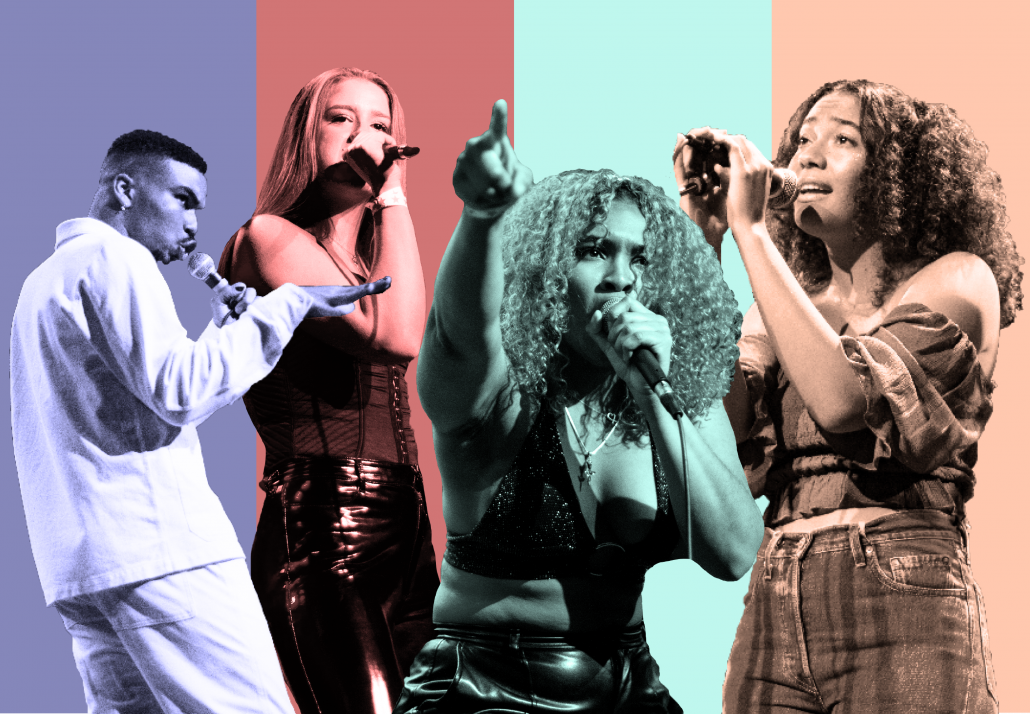How Young Singers and Artists Can Get Producers' and Music Professionals' Attention
29 JULY, 2024
NOSTALGIE NEW YORK

The modern era of music is a dynamic and multifaceted landscape, characterized by rapid technological advancements, diverse genres, and a global interconnectedness that has revolutionized the way we create, share, and consume music. From the rise of streaming platforms to the blending of genres, let's explore the key trends and influences that define contemporary music.

One of the most significant changes in modern music is the shift from physical media to digital streaming. Platforms like Spotify, Apple Music, and YouTube have transformed the way we access music, making it easier than ever to discover new artists and songs. This democratization of music has leveled the playing field, allowing independent musicians to reach global audiences without the backing of major record labels.
Streaming services also provide invaluable data on listening habits, enabling artists and industry professionals to understand their audience better and tailor their marketing strategies accordingly. Playlists have become a crucial tool for music discovery, often propelling unknown artists to stardom overnight.
Modern music is characterized by an unprecedented blending of genres, reflecting a more fluid approach to musical boundaries. Artists are increasingly experimenting with hybrid sounds, merging elements of hip-hop, pop, rock, electronic, and even classical music to create unique and innovative tracks.
Genres like hip-hop and EDM (electronic dance music) have dominated the charts in recent years. Hip-hop, in particular, has become a global phenomenon, with artists like Drake, Kendrick Lamar, and Cardi B leading the charge. The genre's influence extends beyond music, impacting fashion, language, and culture.
At the same time, electronic music has continued to evolve, with subgenres like house, techno, and dubstep gaining popularity. Producers like Calvin Harris, Marshmello, and Diplo have brought electronic music to mainstream audiences, while festivals like Tomorrowland and Ultra Music Festival draw massive crowds from around the world.
The modern music landscape has empowered artists to take control of their careers like never before. Advances in technology have made high-quality recording equipment and production software more accessible, enabling musicians to create professional-sounding tracks from their bedrooms. Platforms like SoundCloud, Bandcamp, and TikTok have become breeding grounds for emerging talent, allowing artists to build and engage with their fanbase directly.
Social media plays a crucial role in this DIY (do-it-yourself) culture, providing a space for artists to share their work, connect with fans, and collaborate with other musicians. Viral sensations like Lil Nas X's "Old Town Road," which gained massive popularity on TikTok before topping the charts, highlight the power of social media in shaping modern music careers.
Globalization has had a profound impact on modern music, breaking down geographical barriers and fostering cross-cultural collaborations. Artists from different parts of the world are increasingly working together, resulting in a rich tapestry of sounds and styles.
Latin music, for example, has seen a surge in popularity, with artists like Bad Bunny, J Balvin, and Rosalía achieving international success. K-pop, led by superstars like BTS and BLACKPINK, has also taken the world by storm, demonstrating the global appeal of South Korean pop music. Afrobeat, with its infectious rhythms and vibrant energy, has gained traction globally, thanks to artists like Burna Boy and Wizkid.
The way we consume music continues to evolve, driven by technological advancements and changing listener preferences. Virtual concerts and live streams have become increasingly popular, especially in the wake of the COVID-19 pandemic, providing artists with a new way to connect with fans. Platforms like Twitch and Instagram Live have become virtual stages, where musicians can perform and interact with their audience in real-time.
Podcasts and music documentaries have also gained popularity, offering fans a deeper insight into the lives and creative processes of their favorite artists. This trend reflects a growing appetite for more immersive and engaging music experiences.
Modern music often serves as a reflection of societal issues and a platform for political expression. Many artists use their music to address topics such as racial inequality, mental health, climate change, and social justice. Songs like Childish Gambino's "This Is America" and Billie Eilish's "Everything I Wanted" resonate with listeners by tackling contemporary issues and sparking important conversations.
Music continues to be a powerful tool for activism, with movements like Black Lives Matter inspiring a wave of protest songs and performances. The ability of music to unite and mobilize people remains as strong as ever, highlighting its enduring significance in shaping cultural and political landscapes.
The modern era of music is marked by constant evolution and innovation, driven by technology, globalization, and the creative vision of artists. As we move forward, the boundaries of what is possible in music will continue to expand, offering exciting new opportunities for artists and listeners alike. Whether through the latest viral hit, a groundbreaking genre fusion, or a powerful protest anthem, music remains a vital and vibrant part of our lives, reflecting the ever-changing world around us.
Send us your email and we'll reply so you can send us
your questions or suggestions.
Thoma 19 jun 2024
ReplyMalion 19 jun 2024
ReplyThoma 19 jun 2024
Reply